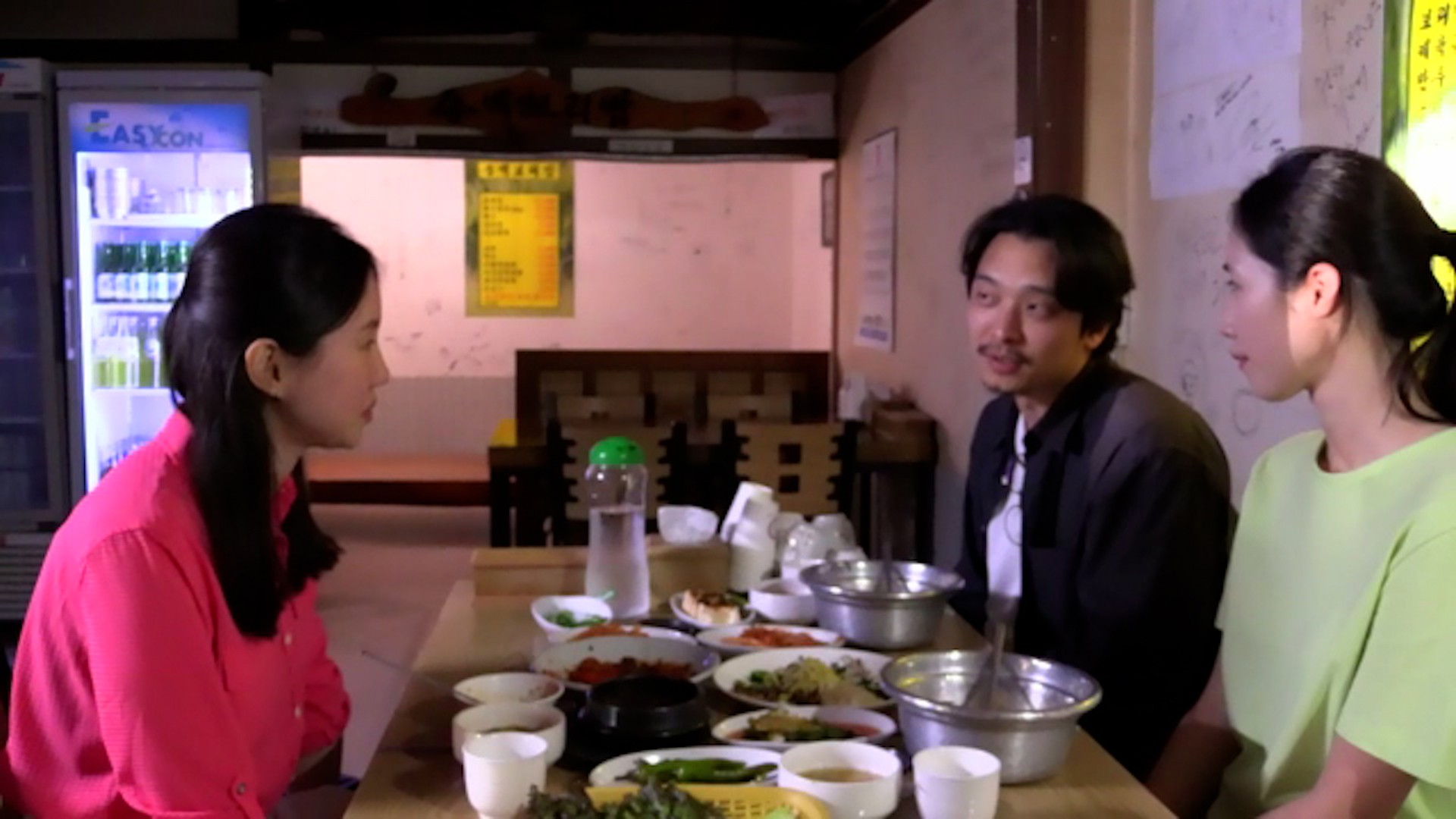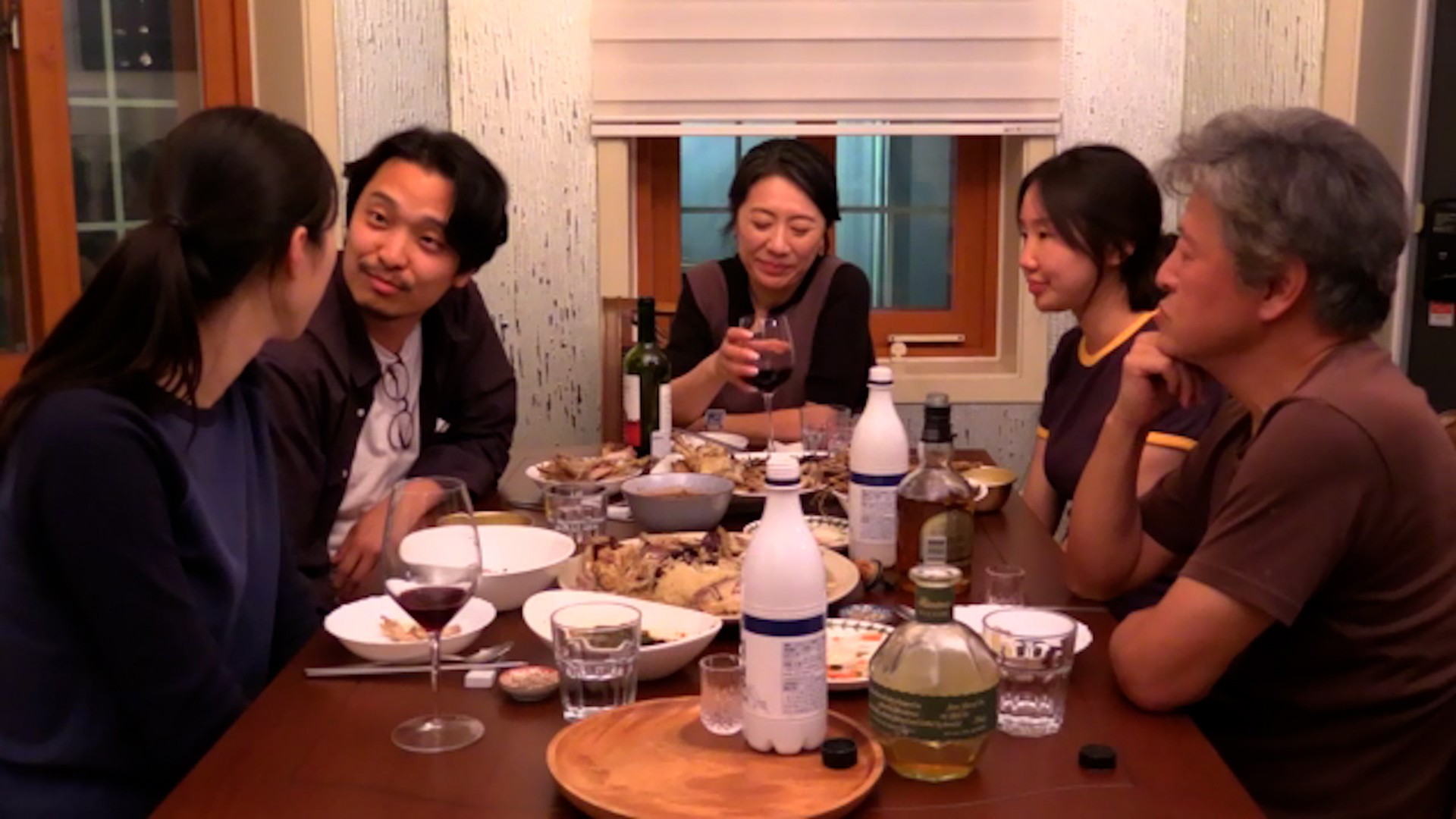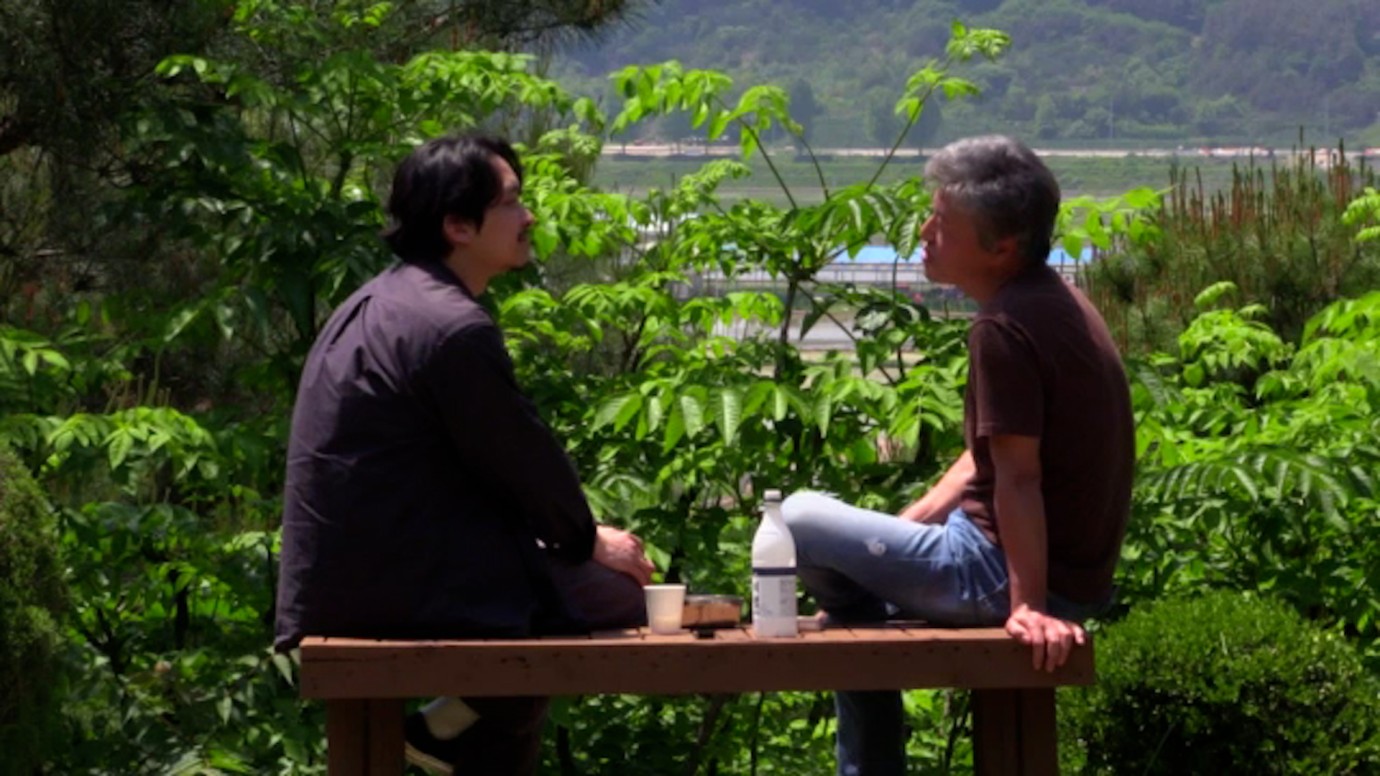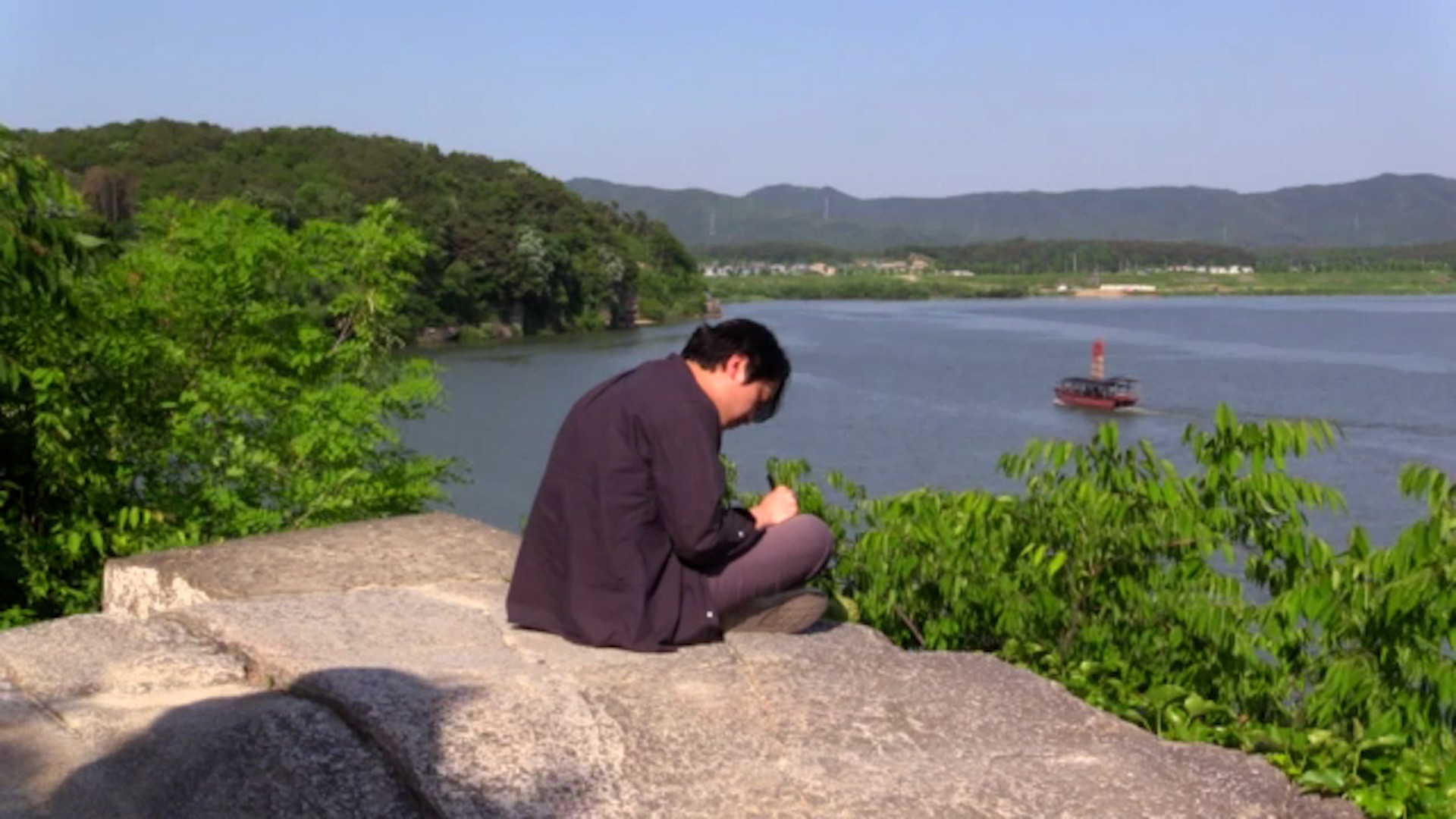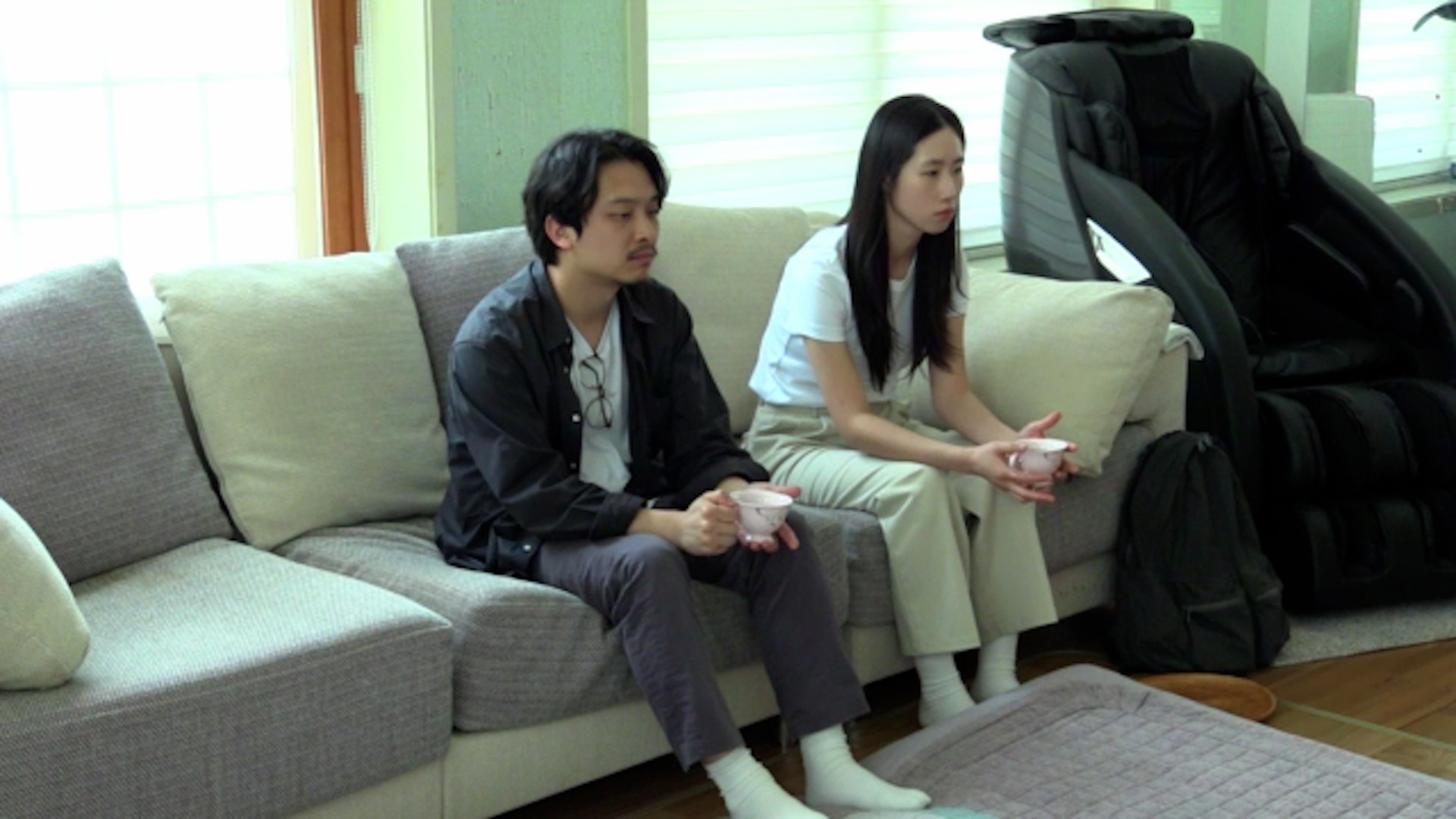Don’t be put off by the fact that this is the 33rd film from South Korean cinematic soloist Hong Sang-soo: each of his films serves as a perfect entry point into his equally modest and magnificent oeuvre of disguised autobiographies.
Where most films are made as if they were classical symphonies, with the director as conductor of an immense orchestra of skilled craftsmen, South Korean director Hong Sang-soo approaches cinema more like a jazz soloist. Both because he improvises freely while making his films, and because he does virtually everything himself.
This continues with What Does That Nature Say to You?, his 33rd feature film in 29 years. As always, Hong is credited as director, screenwriter, producer, composer, cinematographer, editor and sound designer. Or put more simply: Hong does everything except the acting.
“The only thing that can prepare you for this extremely strange and (I think) very funny and pleasantly watchable film are other Hong Sang-soo films,” critic Kees Driessen wrote in 2012 about The Day He Arrives, the first film by this South Korean cinema phenomenon to screen at the festival. In 2019 I agreed when Hong’s Grass played at the festival. It’s still true now. This might sound rather insular, but the opposite is the case. Because every Hong film resembles other Hong films more than anything else, every Hong film is also the perfect gateway into his playful oeuvre. Wherever you begin, it always leaves you wanting more.
Hong’s films emerge in the making. He doesn’t start with a fully developed screenplay, but with a situation, a group of actors and some locations. Every morning he gets up ridiculously early to write scenes, which are shot during the day and given a rough edit that same evening. Based on this, the process repeats itself the next day, continuing until another film is complete.
In the case of What Does That Nature Say to You?, the starting point was Hong discovering that actress Kang So-yi’s parents kept chickens at their house with grounds on the outskirts of Seoul. That house became the location for the film, and one of those chickens has its neck wrung for the drunken dinner that forms the film’s climax.
The film revolves around poet Dong-hwa, a wandering thirty-something who meets his girlfriend Jun-hee’s parents and sister for the first time, despite having been with her for three years. It’s about the function of art and beauty, about privilege, and about the arrogance of artists. But when you’re soloing, it must come from within, and so Hong, as always, breathes a hefty dose of autobiography into his fiction. Last April, at 64, he became a father for the second time (his first child, from an earlier marriage, is already well into adulthood). And so this is primarily a film about parents and children, and how they regard each other.
Joost Broeren-Huitenga



